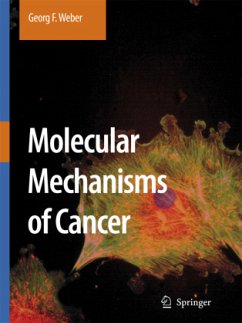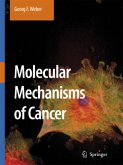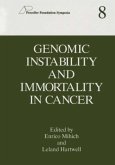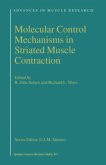Cancer may constitute the most extensively studied functions constitute a second line of defense that disease entity of our time. Nevertheless, our com- protects against transforming defects in oncogenes prehension of the cellular and molecular pathology or tumor-suppressor genes and are here considered of malignant transformation is incomplete. In view as metasuppressor genes. Advances in the molecular of the diverse clinical presentations of various explanations of growth dysregulation, metastasis malignancies, doubts may be raised as to whether it formation, extension of life span, and loss of ma- is appropriate to refer to cancer as one group of dis- tenance of genomic and epigenetic integrity in ease states. The notion of malignant tumors as a cancer suggest models for their causal connection. pathologic and pathophysiologic class of conditions The mechanisms of growth control, senescence, and begs the question for defining criteria that charac- anchorage dependence are linked on the molecular terize all malignant growths, regardless of their tis- level (Chapter 8). In cells that are not fully differ- sue of origin. Toward this goal, the recognition that tiated, the overactivation of oncogene pathways tumor development is caused by the dysregulation also induces the expression of metastasis genes. of growth-controlling genes (oncogenes and tumor- Telomerase, the enzyme that prevents cell sen- suppressor genes) has advanced our mechanistic cence, is expressed in these precursor cells and may understanding of oncology (Chapter 3). However, be further activated by growth factor signaling.
From the reviews:
"The book under review is definitely the best book on Molecular Biology of Cancer. ... It is very well written, clear, with several examples and of easy comprehension. I suggest this book to you if you are interested in to study all the tricks of the molecular mechanisms of cancer. ... The books is a necessary reading for all medical and biological students interested in Cancer and it will become the reference on the subject." (Philosophy, Religion and Science Book Reviews, bookinspections.wordpress.com, December, 2013)
"The book under review is definitely the best book on Molecular Biology of Cancer. ... It is very well written, clear, with several examples and of easy comprehension. I suggest this book to you if you are interested in to study all the tricks of the molecular mechanisms of cancer. ... The books is a necessary reading for all medical and biological students interested in Cancer and it will become the reference on the subject." (Philosophy, Religion and Science Book Reviews, bookinspections.wordpress.com, December, 2013)
"I have found this to be a comprehensive, yet highly focused text on malignancies. Dr. Weber's work covers nicely the interface of physiology and molecular mechanisms in the development and maintenance of malignant cells. The review of the founding pathologic observations is useful in providing a backdrop for today's highly molecular approaches. A deep understanding of the molecular workings of malignant disease is critical to the development of not only therapeutics, but also diagnostics and I have found this text to be highly relevant as a resource to these ends". Gary A. Pestano, PhD, Director, Discovery Life Sciences, Ventana Medical Systems, Inc., Tucson, Arizona USA "Whereas the field of cancer research has increased in complexity over the past decades, this book presents a comprehensive compendium of molecular mechanisms of malignancy and reflects the author's unique vision on pathophysiologic associations that may define general molecular requirements of invasive tumors. This book reaches beyond the current view and understanding of molecular mechanisms of malignancies and prompts the reader to reflect on the current knowledge from a different angle". Professor Dr. med. H.-P. Bruch, Head of the Department of Surgery, Klinik fuer Chirurgie, Univeritatsklinikum, Schleswig-Holstein, Luebeck, Germany








